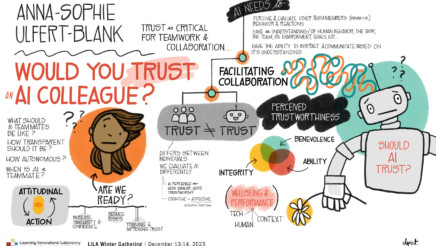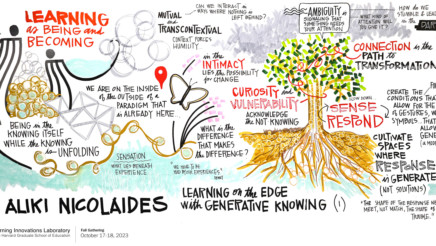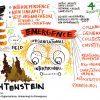As we come together with the LILA Community at large, we will integrate our understanding of an Emergent Organization by revisiting some of the ideas from the year-‐long exploration and inviting new voices into the conversation.
Documents to Prepare for the Gathering
| Title | File Name | Caption | Date |
|---|---|---|---|
| 12th Annual LILA Summit Agenda | 12th-Annual-LILA-Summit-Agenda-.pdf | April 9, 2018 3:27 pm | |
| LILA 2018 Summit Participants | 2018-SUMMIT-Attendees-report.pdf | A list of the members, staff, and guests in attendance. | May 29, 2018 11:49 am |
| June 2018 LILA Brief final | June-2018-LILA-Brief-final.pdf | This is the briefing document for the 12th Annual LILA Summit - Engaging Emergence: Shaping the future as it unfolds. | May 27, 2018 1:00 pm |
| LILA Summit 2018 P&P | LILA-Summit-2018-PP.pdf | This document has the description of the P&P sessions for the June 2018 LILA Summit. | June 4, 2018 4:29 pm |
Materials from the Gathering
| Title | File Name | Caption | Date |
|---|
Optional Readings
| Title | File Name | Caption | Date |
|---|
Blog Posts
Want to share your thoughts? Click here »
Leadership of emergence: How to generate new order?
A Deeper Dive Into Deliberately Developmental Organizations
Speaker(s)








